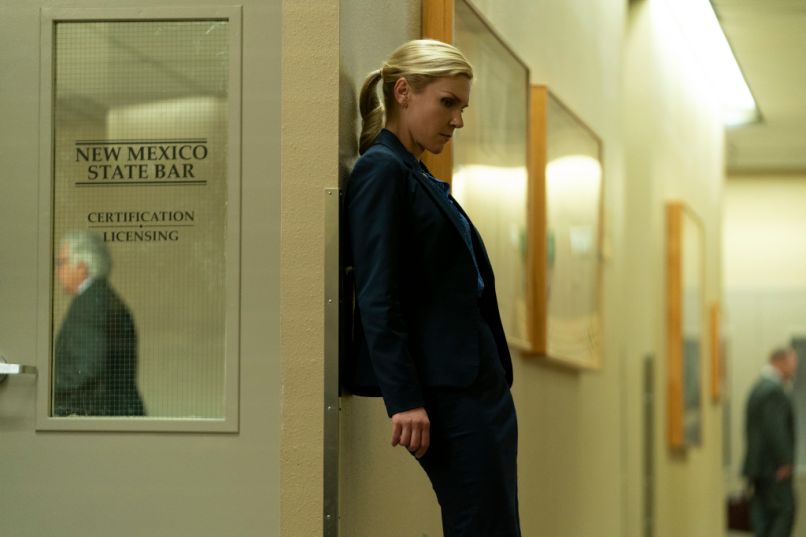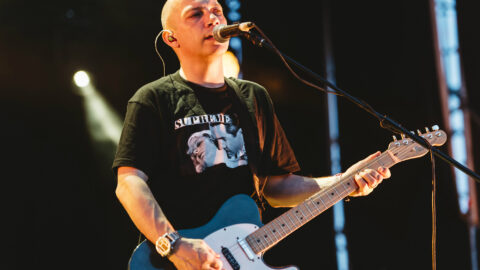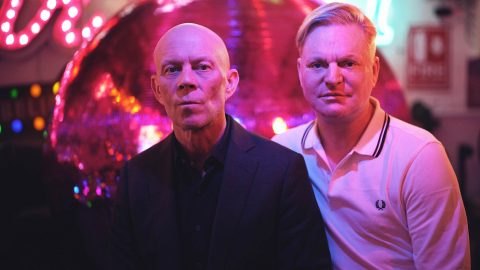
African music, like Latin music, has always placed in the ‘World music’ section of most streaming sites, meaning that the scene is too often misunderstood as being one sound. Well, that was never the case. In Africa, each countries’ own cultures and subcultures have sprung different sounds from Tanzania’s Bongo Flava to the very popular West African alté scene.
And now that the music finally has an umbrella term called afrobeats to encompass the diversities of the continent’s music, which is fronted by Nigeria and its rich scene. This Black History Month – and in the month of Nigerian independence – we look at the journey of afrobeats, from its wonderful beginnings to its huge current success.
Fela Kuti, ‘Obe’ (1969)
Afrobeats had to have originated from somewhere, and that is afrobeat, the sound created by the godfather of African music, Fela Kuti. As a well-travelled man between Nigeria, Ghana, and London, he was able to make alté (Nigerian for alternative) music to the scene around him called highlife. Highlife, originating from Ghana, is a genre that moved Kpanlogo music of the Ga people onto Western instruments, but Kuti lived to blend this with the jazz and blues he was exposed to while travelling.
He was also in love with the likes of James Brown, and mixed these influences with his own style. Before you knew it, adding his mix of Yoruba and pidgin English lyrics to his 10-to-15-minute-long instrumentals, he had craved out the blueprint for afrobeats by making afrobeat. And yes! That added ‘s’ is very important, signifying the West African pop music that eventually emerged from Fela’s trailblazing, as we shall see…
Kofi Nti featuring Ofori Amponsah, ‘Odo Nwom O Waee’ (2004)
A popular sample and Nigerian classic, ‘Odo Nowom O Waee’ is something everyone – no matter if you’re not of African heritage – will find themselves singing. because its chorus is just one of those that sticks in your head due to the phonetic nature of Yoruba. Although you may not understand it, the melodies created through the rhythm of the lyrics is forever being interpolated and sampled. One of the UK’s most iconic examples is chart-topping Tion Wayne’s ‘2 on 2’ with fellow pop star One Acen. One of those classics you play at any and every gathering, ‘Odo Nwom O Waee’ still lives on today.
Flavour, ‘Nwa Baby (Ashawo Remix)’ (2005)
Remember highlife, the genre that inspired Fela Kuti? Well, it hasn’t necessarily kept its true form in the afropop of today. However, the genre has had a momentary comeback with Flavour’s popular gathering classic ‘Nwa Baby’. High-energy with thumping drums and repetitively rhythmic lyrics, this track helped remind afrobeats of its roots and is one of those classics you keep in your back pocket for when you want that nostalgic moment. It’s also surprisingly similar to 90s dancehall music: see how the diasporas intertwine. ‘Nwa Baby’ is the homage to the genre that was the catalyst to the world’s favourite rising scene.
M.I Abaga featuring Djnee, ‘Safe’ (2008)
MTV Base is one of those TV channels that have fuelled the musical passion of many artists and musical personnel of today, and when MTV Base Africa became a thing, M.I Abaga – as well as the huge Ghanaian rap representative, Sarkodie – utilised the opportunity to be like their American rap inspirations and rap on the channel. But what made M.I Abaga stand out was the way he pastiches the golden era of hip hop with ‘Safe’. In the music video, he looks like a knockoff version of Kanye’s earlier ones. He masks his Nigerian accent with this fake American one (that’s understandable), but pushed forward the idea of genre and culture blending throughout the African music scene.
D’banj, ‘Oliver Twist’ (2012)
Release via Ye’s G.O.O.D Music label, this oldie is an afrobeats classic. With a dark, moody sound that sounded unique to whatever there was released in 2012. With the UK’s first-ever afrobeats song to reach the Top 10, D’Banj craved a path and showed a group of Black British kids and Africans everywhere that it is possible to break through to the mainstream in the Western world. Breaking a musical scene that gets quite stuck in its music taste, D’Banj is cited as an inspiration for the next artist in this list.
Fuse ODG, ‘Antenna’ (2012)
After the viral smash ‘Azonto’ took over the African diaspora all over the world and becoming a huge dance craze, British-Ghanaian Fuse ODG was a pivotal figure in getting afrobeats to the mainstream of the UK, a place it has always had roots in. This single was his debut on a major label, which reached Number Seven on the UK singles chart, blazing a pathway for more afrobeats-sounding tunes to shine through and become popular, before the afroswing craze followed.
Davido, ‘Dami Duro’ (2012)
This track was the second single for then-emerging afro-pop superstar Davido’s debut album ‘Omo Baba Olowo’, and it catapulted Davido’s career, turning him from an underground secret to a rising afrobeats star – a bit like the next two entries in this list. To be the best, they all had to start somewhere, and ‘Dami Duro’ represented this point for Davido. It earned him the Hottest Single of the Year at the 2012 Nigeria Entertainment Awards, and also the prestigious Best Video By New Artiste at the Nigerian Music Video Awards. ‘Dami Duro’ was the launching pad for Davido’s work today, which is ever-changing but always has a nostalgic hark back to the original afrobeats sound.
Wizkid, ‘Don’t Dull’ (2012)
Those Wizkid fans who only loved his last album, the sensational ‘Made In Lagos, truly miss out on the fun young Wizzy Baby, whose music was joyous and still is a cultural staple today. Continuing to live on through Africa’s gen-Zers, who grew up listening to this via their cousins or siblings’ speakers, ‘Don’t Dull was one of those first crossover hits for Wizkid – especially in the UK. It was this popularity with the UK diaspora that racked up the song’s iTunes downloads.
The track also formed an instrumental Tim Westwood offered the LA Young Money signee, Tyga, to rap on when he did his first-ever freestyle back on the DJ’s BBC Radio 1Xtra show in the same year. That freestyle earned Wizkid a Tyga feature on his second album, 2014’s ‘Ayo’, too. Only the second single from his debut album ‘Superstar’, the song and album are still some of the biggest records in afrobeats, and ‘Don’t Dull’ is a perfect example of why.
Burna Boy, ‘Tonight’ (2013)
Burna Boy’s ‘Tonight’ was a sleeper hit that often is too often overlooked when it comes to the Don Gorgon’s legacy. Heavily influenced by the Jamaican culture in London – where he lived to attend university – there’s a blending of both afrobeats and dancehall sounds on his debut single, foreshadowing of the eclectic and genre-blending music he make now. ‘Tonight’ marked afrobeats becoming a melting pot of different vibes, styles and tempos. Prior to this, afrobeats had exuded upbeat, rhythmic melodies with traditional drum lines sitting with quite organic instrumentals. On ‘Tonight’, these signature basslines are computerised with synths for a futuristic appeal that still harnessed that unique afrobeats flavour.
P-Square, ‘Personally’ (2014)
‘Personally’ enabled the feel-good dance culture of afrobeats to coincide with dance music around the world. With this off-kilted take on the afropop sound of the early ‘10s, ‘Personally’ was an infectious dance track that now seems like a precursor for tunes like Burna Boy’s 2018 ‘Ye’. Highlighting the importance of community, ‘Personally’ inadvertently poses the question: if you can’t enjoy the sound with your friends, is it truly afrobeats?
J Hus, ‘Want From Me (Remix)’ (2014)
Afroswing is the UK’s response to thinking outside the box musically, while also enabling artists to rep their heritage. Many place the originator title on north London’s own J Hus, who loved rapping over grime beats with afrobeats-style basslines (see ‘Friendly’, a Hus cult-classic). However, this rendition of his former foe Kojo Funds’ ‘Want From Me’ (which is still good, just not as iconic as Hus’) marks the start of his use of subdued, buzzing basslines basslines of the Motherland.
Wizkid featuring Skepta and Drake, ‘Ojuelegeba (Remix)’ (2014)
The first linkup between Wizkid and the ‘Certified Lover Boy’ himself, Drake, appeared on the remix to the hopeful tune from Wizzy’s ‘Ayo’. ‘Ojuelegeba’ was a smash in Nigeria, especially since it was named after one of the busiest towns in the capital. Switching between Yoruba and English, the song details Wizkid’s story of the grind as an underground star on the rise in the hustle and bustle of the town. With Skepta’s soul-exposing verse about what it’s like growing up as a first-gen African in London, and Drake crooning over the best per usual, this was a really big push in the world of afrobeats.
Drake featuring Wizkid and Kyla, ‘One Dance’ (2014)
But the biggest push was Wizkid being on the most streaming song ever in Spotify’s streaming history. ‘One Dance’ absolutely engulfed the world, sitting at the top of charts around the world for weeks on end. This tropical afro-inspired sound of ‘One Dance’ – and eventually Drake’s sixth mixtape, ‘More Life’ – proved it was finally time for African (specifically Nigerian) talent to get their shine.
Mr Eazi featuring Efya, ‘Skintight’ (2016)
This smooth, sultry tune was one of British-Nigerian Mr Eazi’s biggest hits. Slowing down the typical afrobeats sound for something a lot more ethereal and sexy, ‘Skintight’ definitely solidified the UK’s preference for smoked-out afro-inspired sonics over the rampant party energy of typical afrobeats. Firmly moving away from tradition, afroswing was a lot easier to commercialise and diversify because of its simple, minimalist construct. The sonic was the perfect trojan horse, able to camouflage afrobeats into many popular sounds. And whilst there was this soulful era in the weird in-between era of the UK’s hip-hop world, the R&B-inflected ‘Skintight’ worked perfectly.
Naira Marley, Blanco, TG Millian, ‘Money On The Road’ (2017)
‘Money On The Road’ is one of the first songs in which the drill world teamed up with the UK afrobeats scene, as the Harlem Spartan drill star Blanco took to the track with his fellow friend TG Millian and south London affiliate Naira Marley. The result: an infectious and timeless UK classic. The sound of 2017 house parties (when hearing it you could still smell the cheap whiskey in the air), ‘Money On The Road’ not only opened up the drill world to afroswing but also solidified Naira Marley as a class act, after his breakthrough track ‘Marry Juana’ went viral in 2015. This anthem was ahead of all the UK’s rising afro-alternative scene to come.
Burna Boy, ‘Ye’ (2018)
The ultimate party anthem, ‘Ye’ reminds you to just enjoy life. It was a massive breakthrough hit for Burna Boy, as he solidified himself as one of Nigeria’s main three – alongside Wizkid and Davido – leading on what the new sonic of afropop is. ‘Ye’ really placed the feel-good nature of Nigeria on everyone, whenever you heard it, and the tune became an underground sleeper hit, soundtracking 2019 for many, even though it was released the year before. With the help of his fourth studio album ‘African Giant’ and the most successful song in Nigerian musical history, ‘On The Low’, Burna pushed the sound into the place where you can test what is popular: the club.
Davido, ‘Fall’ (2017)
If you weren’t not for the partying and energetic nature of Burna Boy, you’d love Davido’s more traditional sound. He has the sultry pop tracks like ‘Blow My Mind’, but ‘Fall’ really solidified him as a genuine commodity due to its infectious lyrics all about love through the eyes of Nigerian culture: “Money fall on you”. This track made history in the US as the longest-charting afrobeats song (as of February 2019) and was the first-ever to go Gold there too.
Cruel Santino featuring Amaarae, Shane Eagle and Tomi Agape, ‘Rapid Fire’ (2019)
Alté was once a small movement, mostly zoned in West Africa’s biggest city hubs, Lagos and Accra, that saw the rebellion of kids who were getting sick of the similar-sounding nature of afrobeats. So when stars like Cruel Santino (still called Santi by old fans) came out with this huge fusion of dancehall, R&B and even a little drum and bass, along with their native languages and bassline, it helped to create the infectious and fun, global alté scene that’s still thriving today.
Tiwa Savage, ‘Attention’ (2019)
The queen of Afropop, Nigeria’s Tiwa Savage has been putting on a great front for the amazing women in the African music scene for a long time after being rejected from The X Factor UK in 2006. Budding afrobeats stars singer Amaarae and rapper Nasty C are now starting to pull through for the women, but Tiwa has always been the face of female talent in the continent. ‘Attention’, from her third album ‘Celia’, was her first-ever Nigerian Number One single, firmly placing her in the upper echelon of amazing African talent. Tiwa was the first woman to receive the Best African Act at the 2018 MTV Europe Music Awards, as well as being the first Nigerian signed to Jay-Z-fronted label Roc Nation. There’s a lot of girl power in afrobeats!
Wizkid featuring Tems, ‘Essence’ (2020)
Wizkid has come a long way from his 2012 debut album. With last year’s ‘Made In Lagos’ at the end of last year, Wizkid released some of his best work ever. And ‘Essence’, which catapulted the rising Nigerian star Tems into the limelight, became that radio-friendly hit that encompasses everything already discussed in this list. It strays away from the blaring nature of the traditional afrobeats but still has that deep rhythmic bass that gets your hips going. And now, after Canadian superstar Justin Bieber remixed it, ‘Essence’ is the highest-charting afrobeats song ever. That means Wizkid and Tems are the first two African artists to ever make the Top 10.
And the journey’s still not over, thanks to youngsters like the Nigerian-born CKay, whose viral TikTok song ‘Love Nwantiti’ broke the UK charting history, making him the highest-charting African star ever. Afrobeats has a lot more to do before the scene can fizzle out.
The post The story of afrobeats in 20 seminal songs appeared first on NME.






